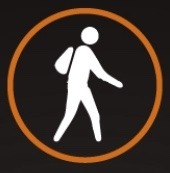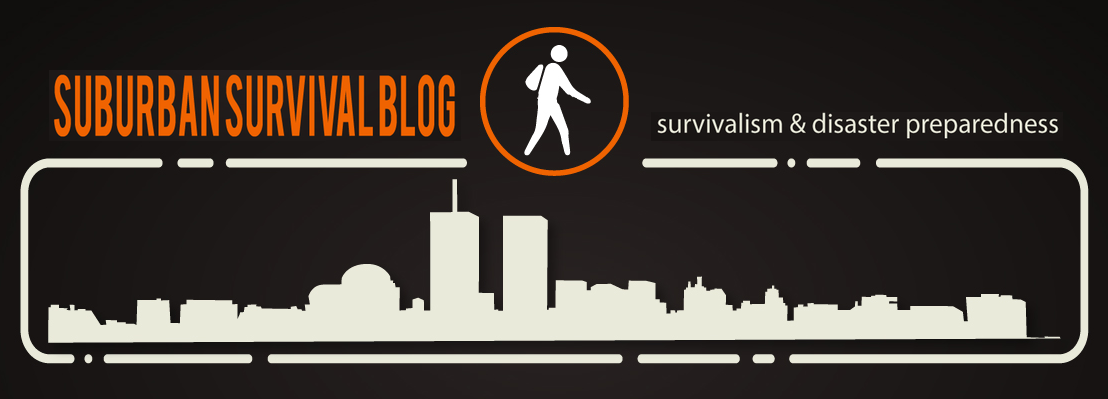I work from home remotely from my company’s office. It is a curse and a blessing. I can get a LOT done in a shorter period of time because almost as soon as I wake up, wipe the sleep out of my eyes, I am at work… When I need some flex time to go to the doctor, pick up something at the post office, etc. it’s a dream. Working from home helps me to be much more productive in my life. My commute is literally one bedroom to another bedroom converted into an office, which incidentally houses some of my food storage, office supplies, etc. The commute is 10 steps from bedroom to bedroom… A far cry from commuting to and working in NYC and walking an average of two to three miles a day for what I will call passive exercise. Ms. Prepper works in NYC and has the commute from hell twice daily. I do not envy her. When I worked in NYC, the walking from place to place alone helped to keep 10 — 15lbs lighter on my feet. When I started working from home in 2008, in just a few months, I put 10lbs on, and I can tell you it wasn’t muscle weight. I continued eating at the same rate as I was when I was running around NYC, and it has been a real challenge over the past several years to keep the weight off, and to lose it because my lifestyle has become more sedentary.
I think it took six months of working from home, and I was 20lbs heavier. Seriously. Crazy, right? 10 steps and sitting behind a desk for 10+ hours isn’t anyone’s idea of active, and when I travel on business, forget it.
In the past seven or so years since I have worked from home, I’ve found it hard to lose weight. I’ve also found it hard to pull myself away from the desk to work out. In addition, I fear that the time behind a desk only steps from my bedroom has helped to contribute to a few other medical issues accelerating, such as arthritis in my right knee and slight arthritis in my neck from sitting in front of a PC for so long every day. This doesn’t sound like such a big issue, but I recently found out, it can be. These days I am tipping the scale at just under 250 lbs. Just under the heaviest I have been another time in my life. I recently also started Krav Maga classes. Enter the arthritis pain in my knee. Trips to an orthopedic surgeon added some cortisone shots for the pain, as well as something called Synvisc. It helps to lubricate the knee, and should last four to six months. It lasts me about three before the pain starts again. Insurance only covers it every six months. Even with the cortisone and the Synvisc, my knee will feel like it’s going to explode a day after Krav Maga classes due to the warm up calisthenics they put us through. It’s a little mentally defeating when you’re trying to do something positive for your body, and you’re body fights back.
To define the title of this post, physical fitness, I feel is a “Does Your Job Help You Stay Prepped, Trained, and Fit?” I am ever feeling that my ability to be physically fit is an essential prep. And that my current and lifestyle of recent has not (and i have not given proper consideration to), afforded the opportunity to stay that way.
With my new, echem, disabilities, I plan on continuing Krav Maga, partially because I committed financially to a year, partially because I have always wanted to learn it, and partially as a way to hopefully lose some of those unwanted pounds, strengthen my heart, lower some blood pressure, and get in better overall physical condition. I have also been encouraged, many times, by Ms. Prepper to take some Yoga classes to help elongate my spine, stay more limber, as well as strengthen my core. I’m finally considering taking her up on that. Ms. Prepper is a Yoga instructor, so she has a bit of practical experience in this area.
Some other downsides of the arthritis and my new found handicap at the ripe age of 46 is oddly confronting my mortality. Not in a life and death way, of course, but in such a way that you realize that you have “limitations” and that you’re not as indestructible as you thought you were. Additionally, other thoughts cross your mind such as, “am I going to be able to bug out on foot if I need to?” Or, “If I bug out on foot, how far will I get before the pain kicks in?” The questions go on and on. It definitely makes you think differently about bugging out, preparedness, bugging in, or many other “what if” scenarios going forward.









Feeling the hand of age is a bummer. Arthritis is one of those conditions that I refer to as “swelling we can’t explain”. I do yoga and mobility exercises daily to keep everything moving.
Inflammation can also stem from food choices digg down deep into your diet, don’t be afraid to juice.
Health is your #1 prep.
Thanks Miguel. I agree. My Fiancee is a Yoga instructor and have been looking at picking up that as well to keep me flexible. It’s just a matter of actually starting it.
Shortly after my last birthday—-I am 57—I decided it was time to focus on my physical health and well being. It was either get in shape or give up completely! So, I took the plunge and signed up for a program that my daughter-in-law is a coach for called 21-Day Fix through an organization they call Beach Body. Well, I didn’t want a beach body, I just didn’t want to look and feel like a mushy old lady! I was amazed at how well it worked for me and how much better I look and feel. After 8 weeks, I am down 11 pounds and over 10 inches.….enough to get into clothes I hadn’t worn in nearly ten years. So, don’t give up! Make a commitment to your SELF and good luck! (Yoga is the Sunday workout routine for my program, and I love it.) We really DO need to be in good shape to survive.
Hey Jack,
I know what you mean. My work allows me to take a couple of months off (work from home) in a year and I really feel lethargic during the months that I work from home.
I guess if you’re not the kind who conscientiously exercise, working from home (while productive) not a healthy life.